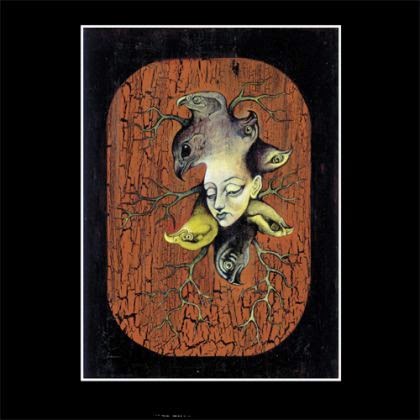 I suppose it is fair to say that what set Breathless apart from their contemporaries was the extraordinary voice of Dominic Appleton; it somehow managed to encapsulate a desolate longing, but never really strayed into melancholy.
I suppose it is fair to say that what set Breathless apart from their contemporaries was the extraordinary voice of Dominic Appleton; it somehow managed to encapsulate a desolate longing, but never really strayed into melancholy.
Opener “I Never Know Where You Are” has the kind of driving, insistent rhythm which was the stock in trade of the more emotive guitar bands thirty years ago, (yes, that’s right; this album is celebrating its thirtieth anniversary), but the furious crash of guitarist Gary Mundy really attempted to put in musical terms what Dominic was singing, ring of frustration that soared. The song is about obsession, the longing, the sense that everything he loved is lost, out of reach and the crying, searing guitar echoes. Thankfully, the warmth of Ari Neufeld‘s bass chords and the subtle drumming draw us back from the abyss.
There are nine tracks on this reissue, including their cover of The Only Ones‘ “Flowers Die”, one more than the original vinyl release. Only one song clocks in at less than four minutes, with most being around five or six, which gives the band plenty of opportunity to build a storm out of a gentle opening; “Wave After Wave” in particular, with Martyn Watts‘ rolling toms and clashing cymbals is just great, with Dominic’s voice chasing the music rather than the other way around, as if he is afraid of losing the band. There is a dreaminess to the guitars, and the atmosphere of “You Can Call It Yours” brings to mind some of Felt‘s more languid moments, but the subject matter is far rawer: “Take my life, you could call it yours”, he intones as the guitars leap with a rush of rugged grandeur pushing further into the distance as the intensity grows. The songs aren’t all an emotional rush, and where he tempo is taken down a little, the sensitivity increases, particularly on the six minutes of the slow and chiming “Clearer Than Daylight”; the voice is warm, but distant somehow, and the song moves slowly like a distant storm, fleshed out with spiralling guitar patterns that streak the sky with silver.The Only Ones cover, which was produced by John Perry and had him playing rhythm guitar, received approval from him and manages to turn from a forlorn trudge into a joyful gallop in the blink of an eye. They do it great service by making it their own and then launching into “Help Me Get Over It”, which has a guitar sound reminiscent of late Velvets but really, there is no precedent for this band. Their ability to conjure movement and momentum is part of their playing relationship, and the power they extend here really does lead to a breathless finish (no pun intended).
-Mr Olivetti-



